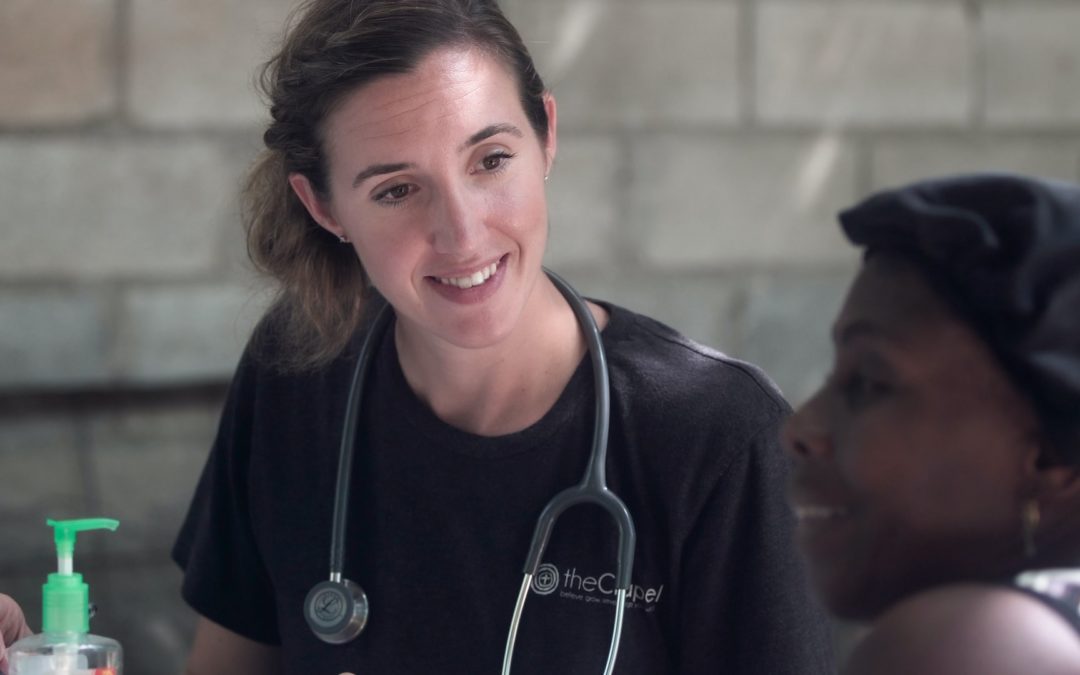Ethical dilemmas are not just topics for classrooms or philosophers. They happen to regular people every day – in workplaces, families, friendships, and personal decisions. Sometimes they come quietly. Other times, they hit hard and fast.
You may be stuck between telling the truth or sparing someone’s feelings. You might have to choose between following the rules or helping someone in need. In these moments, the answer isn’t always clear. That’s exactly what makes it an ethical dilemma – you’re faced with two or more choices, and each one carries a cost.
In this article, we break down what an ethical dilemma is and share real-life ethical dilemma examples that are easy to understand. Each situation highlights the difficult choices people face when values collide – honesty vs. loyalty, justice vs. compassion, self-interest vs. fairness.
What Is an Ethical Dilemma?
An ethical dilemma is a situation in which a person must choose between two or more conflicting moral values or principles, where no option feels clearly right or wrong and no single choice is free of moral compromise. In these moments, doing the right thing for one value often means going against another.
For example, telling the truth may hurt someone’s feelings, while staying silent protects them but feels dishonest. Ethical dilemmas often involve choices between honesty and loyalty, rules and compassion, or fairness and self-interest.
These situations are common in everyday life – at work, in relationships, or in personal decisions. What makes them difficult is that every possible action comes with a moral cost. There is no perfect solution, only the most ethical decision a person can make based on their values.
Powerful Examples of Ethical Dilemmas
These real-life ethical dilemma examples show how complicated moral decisions can be. Each one presents a situation where values collide, and no option feels completely right. They reflect the kinds of ethical problems people face every day—at work, at home, and in personal relationships:
1. Telling the Truth vs. Protecting Someone’s Feelings
Your friend is about to go on stage for an important speech. They ask you, “Do I look okay?” But you notice something is off—maybe their clothes are wrinkled or stained. Telling the truth might embarrass them or shake their confidence. Lying spares their feelings but compromises your honesty. The ethical dilemma here is: Should you be honest and risk hurting them, or lie to protect their emotions?
2. Loyalty to a Friend vs. Doing What’s Right
You discover that a close friend at work has been taking company supplies home for personal use. You know it’s wrong and against company policy. Reporting them may cost your friendship. Staying silent might get you into trouble later, especially if others find out. The conflict is between loyalty to a person and loyalty to the rules—a classic ethical dilemma.
3. Hiring the Best Candidate vs. Helping a Family Member
You run a small business and are hiring for a new position. A family member needs a job badly, but there’s another candidate who is clearly more qualified. Choosing the family member feels personal and supportive. Hiring the better candidate feels fairer to the business and the team. You must decide between favoring family or making the professionally ethical choice.
4. Telling a Secret That Can Save Someone
A teenager tells you in confidence that their friend is thinking about self-harm. They beg you not to tell anyone. But keeping the secret may allow harm to happen. Telling someone could break their trust but might save a life. You’re stuck between honoring privacy and preventing harm—a deeply difficult ethical call.
5. Taking Credit or Sharing It
You’ve worked hard on a group project, but your teammate barely helped. At the end, your boss praises the entire team. You’re offered a chance to clarify who did what. Taking the credit might be honest. Staying silent avoids conflict. The ethical question is: Should you correct the record, or let it go to maintain peace?
6. Saving One Life or Many
A hospital has one dose of life-saving medicine. Two patients need it—one is young with a family, the other is elderly but also very sick. Only one can receive treatment. The dilemma: Do you save the one with more life ahead, or treat the one who’s in more critical condition? This example shows how hard medical ethics can be.
7. Choosing Between Two Friends in Conflict
Two close friends have a falling out and each asks you to take their side. You agree with parts of both arguments. Staying neutral may upset both. Choosing a side might feel like betrayal to the other. You must weigh honesty, loyalty, and fairness, knowing you may hurt someone no matter what you choose.
8. Returning a Lost Wallet With No ID
You find a wallet full of cash, but there’s no identification. No way to find the owner. You could keep it, and no one would know. Or you could turn it in to the police or a lost-and-found. There’s no reward, and maybe no return. But the choice is about doing what’s right even when no one’s watching.
9. Speaking Up Against a Popular Opinion
During a team meeting, a group agrees on a decision you believe is morally wrong or harmful. Everyone seems confident and excited. Speaking up could make you the odd one out. Staying quiet protects your status but goes against your values. This dilemma tests courage and integrity versus comfort and acceptance.
10. Breaking a Rule to Help Someone
A store has a policy against giving away expired food. But a hungry person outside is clearly in need. You know the food is still safe to eat. Giving it away breaks company rules. But throwing it out feels wrong. The ethical struggle is between compassion and obedience to rules, with no easy answer.
11. Protecting a Coworker vs. Following the Law
You work in a warehouse. One day, you see a coworker, who’s a single parent, taking food from a shipment. They say they’re desperate. Reporting them would likely get them fired. Staying silent means ignoring company policy and theft. The ethical choice is tough: follow the rules or show compassion?
12. Accepting a Gift That Feels Wrong
A client gives you an expensive gift to thank you for your service. It’s kind, but your company has a policy against accepting gifts. Refusing the gift might insult the client. Accepting it may put your job at risk. The dilemma here is between gratitude and integrity, with consequences on both sides.
13. Honoring a Promise That Harms Others
You promised a friend you wouldn’t share a certain secret. Later, you find out that keeping it may cause harm to someone else. Telling the truth could protect people, but it means breaking your word. You’re caught between keeping a promise and preventing harm—two values that both matter.
14. Taking a Job You Need vs. Knowing It’s Unfair
You are offered a job, but find out someone else was more qualified and had been promised the position. You really need the income. Turning it down feels impossible. Accepting it means benefiting from someone else’s unfair loss. The ethical conflict is between self-interest and fairness.
15. Cheating to Help Someone You Care About
A family member is failing a class. If they don’t pass, they lose a scholarship. They ask you to help them cheat just once. You care about them and want to help. But you also know it’s dishonest and unfair to others. The dilemma is clear: helping someone vs. doing what’s right.
16. Being Honest About a Failed Project
You were leading a project that didn’t go well. Most of the team assumes it was someone else’s mistake. You could let that misunderstanding continue, or you could take responsibility. Owning up may cost you your reputation. Staying quiet protects you but feels wrong. The moral tension lies between truth and self-protection.
17. Saying No to a Boss You Disagree With
Your manager asks you to slightly alter data in a report to make results look better. It’s not a huge lie, but it’s not the full truth either. Refusing could make your boss angry. Agreeing means compromising your values. The dilemma is between honesty and job security, and both options are risky.
18. Telling a Child the Harsh Truth or Softening It
A child asks you about something painful—maybe a death or why a parent left. You can tell the full truth, which may hurt and confuse them. Or you can soften the facts to protect them. The ethical conflict is between honesty and emotional protection, with no obvious “right” answer.
19. Letting a Mistake Slide to Avoid Trouble
You accidentally ring up a customer for less than they owe. They don’t notice. Correcting it means restarting the process and possibly facing complaints. Letting it go seems easier, but it feels dishonest. You have to choose between correcting a small wrong or avoiding conflict.
20. Supporting a Friend in Denial
A friend is making a clearly bad decision—quitting their job suddenly or dating someone abusive. They don’t want advice, just support. Staying supportive means not saying what you really think. Speaking up may upset them or end the friendship. This dilemma pits honesty against loyalty, both rooted in care.
21. Reporting a Mistake That No One Noticed
You make a small error at work that might affect a client’s account, but nobody has seen it yet. Fixing it now would require confessing, and it might make you look incompetent. Letting it go risks potential consequences later. You’re stuck between owning your mistake or staying silent to protect yourself.
22. Telling the Truth About a Reference Letter
A former employee asks you for a reference. They were likable but underperformed. Writing a glowing letter feels dishonest. But writing the truth might cost them a new job. You have to choose between protecting your integrity or helping someone move forward.
23. Letting a Loved One Win for Their Happiness
You’re playing a competitive board game with a family member who’s had a rough week. You’re clearly winning. You can either play honestly and win or hold back to let them enjoy a rare victory. It’s a small moment, but the dilemma shows a quiet conflict between fairness and kindness.
24. Telling a Friend Their Partner Is Cheating
You find out that your friend’s partner is cheating on them. You’re not sure how your friend will react, and the news could break their heart. But staying silent also feels wrong. The ethical challenge is choosing between speaking a painful truth or protecting someone from immediate hurt.
25. Keeping a Job That Hurts Others
You work in a company that sells legal but questionable products—like high-interest loans or aggressive marketing tactics. It pays well and supports your family. But you feel uneasy about the business practices. You face a choice between financial security and personal values.
26. Prioritizing One Child Over Another
As a parent, you’re invited to two important events on the same day—one for each of your children. You can only attend one. Choosing means supporting one child while the other may feel left out. The decision isn’t easy, and there’s no perfect solution.
27. Witnessing Harassment at Work
You see a colleague make an inappropriate comment to another coworker. The victim brushes it off. Reporting it may cause tension or backlash. Ignoring it feels wrong. The dilemma is whether to speak up for someone who may not want help, or avoid creating drama.
28. Covering for a Colleague Who’s Struggling
A coworker is going through a tough time and asks you to finish a task for them without telling the manager. Helping them feels supportive. But it’s against policy and could affect your own work. The ethical tension lies between compassion and professional boundaries.
29. Accepting a Promotion Over a Friend
You and a close coworker apply for the same internal promotion. You get the offer. They congratulate you but you know they needed it more. You consider turning it down. But you’ve earned it too. The dilemma is about fair success vs. personal loyalty.
30. Skipping a Queue in an Emergency
You’re at the pharmacy with someone who needs urgent medication. The line is long. You consider asking to go ahead or just stepping forward. Others may not understand or approve. The ethical choice is between waiting your turn and acting quickly to help someone in need.
Other Examples of Common Ethical Dilemmas
- Giving Honest Feedback That Might Cost Someone Their Job
- Canceling Plans to Help a Stranger
- Reporting a Classmate for Cheating
- Lending Money You Can’t Afford to Lose
- Protecting a Family Secret vs. Telling the Truth
- Saying Yes to a Favor You Know Is Wrong
- Letting a Group Decision Go Unchallenged
- Publishing Sensitive Information for the Public Good
- Disobeying a Parent for Moral Reasons
- Choosing Between Two Job Offers: Ethical vs. High Paying
Read more
Is There a Right Answer to an Ethical Dilemma?
When you’re in the middle of an ethical dilemma, it rarely feels simple. You may pause and ask yourself: What’s the right thing to do here? But the truth is, ethical dilemmas don’t always have a perfect answer. That’s what makes them dilemmas in the first place.
In many cases, you’re forced to choose between two important values. You might value honesty, but also kindness. You might believe in fairness, but also want to protect someone you care about. These values matter—but in a dilemma, they collide.
So, is there a “right” answer? Sometimes yes. But more often, there’s a best possible answer for that moment, based on your judgment, your values, and the context. What feels right for one person may feel wrong to another. And what seems fair today might feel unfair in hindsight.
People handle ethical choices differently. One person might report a coworker who breaks the rules, while another might give them a second chance. Neither is fully wrong, and neither is fully right. What matters is why the choice was made—and what values guided it.
This is where real-life ethics differ from rules in a book. Life is messy. Situations come with pressure, emotions, and consequences. You may have limited time to decide. Or feel torn between loyalty and integrity. And sometimes, no matter what you choose, someone may get hurt.
That’s why ethical decision-making takes more than just knowing right from wrong. It takes thought, courage, and self-awareness. And it often comes with a cost.
So no—there isn’t always one clear “right” answer. But there is a responsible one. An honest one. A choice you can stand behind—even if it wasn’t easy.
And sometimes, that’s the best anyone can do.
How Do You Know What’s Right and What’s Wrong?
Knowing what’s right and what’s wrong isn’t always as obvious as it sounds. Most people grow up being taught basic values: don’t lie, don’t steal, treat others with respect. But when those values clash—or when the situation gets complicated—answers aren’t always clear.
So how do you decide?
Start by listening to your own conscience. That quiet, uneasy feeling in your gut is worth paying attention to. If something feels off, it probably is. Most ethical decisions begin with that first instinct.
Next, ask yourself some honest questions:
-
If someone did this to me, would it feel fair?
-
Could I explain my choice to someone I respect?
-
Would I feel proud of this decision a week from now? A year?
-
Am I helping someone—or just avoiding discomfort?
These aren’t fancy questions. They’re practical. And they can cut through the noise when you feel stuck between options.
It also helps to think about values. Not just rules, but values. Things like honesty, responsibility, loyalty, and compassion. Sometimes doing the right thing means breaking a rule to protect someone. Other times, it means telling a hard truth instead of staying quiet.
There’s no one-size-fits-all formula. But one good rule of thumb is this: The right decision is usually the one that costs you something, but lets you sleep at night. That cost might be time, comfort, or popularity. But if it aligns with your core beliefs, it’s probably the right road to take.
People don’t always agree on what’s right. That’s okay. What matters is that you think, reflect, and decide with integrity.
Right and wrong don’t always shout. Sometimes, they whisper. And it’s your job to listen.
Why Are Ethical Dilemmas So Difficult?
Ethical dilemmas are hard because they force you to choose between things that matter. You’re not picking between good and bad. You’re picking between two “goods”—or trying to avoid two “bads.” That’s what makes the choice painful.
Often, there’s no rulebook. No clear law. Just you, your values, and the pressure of the moment.
It can feel like you’re being pulled in two directions. You want to be honest—but also kind. You want to follow the rules—but also help someone in need. In real life, those values don’t always line up neatly.
People also fear consequences. What if telling the truth costs you a friendship? What if doing the right thing makes you look bad at work? That fear is real. It can cloud judgment, even when you know deep down what the right choice is.
Ethical choices also come with pressure. Time pressure. Social pressure. Sometimes you’re expected to decide quickly, with others watching. That makes thinking clearly even harder.
And let’s be honest—doing the right thing often means making a sacrifice. It might cost you comfort. Or safety. Or approval. That’s why some people stay silent when they should speak up. Or look away when they should act.
But here’s the thing: Struggling with an ethical dilemma doesn’t make you weak. It means you’re thinking. It means you care. People who never feel doubt are often the ones who stop questioning themselves—and that’s more dangerous.
There’s strength in pausing. In asking hard questions. In choosing what you believe is right, even when it’s not easy.
That’s what ethics really comes down to. Not perfection. Just the courage to try and do what feels right—especially when it costs you something.
Read also: 30 Best Examples of Ethical Dilemma in Healthcare
The Most Popular on BitGlint

35 Benefits of Studying History
The study of history provides us with a wealth of knowledge about the past and enables us to understand the present...

100+ Things That Are Cold
Cold is something most people understand the moment they feel it. You step outside on a freezing morning. You grab a...

30 Benefits of Studying Psychology
Psychology is a fascinating field that explores the human mind and behavior. Studying psychology can provide you with...

100 Non-Digital Things List
In everyday life, there are still hundreds of objects, tools, and materials that exist completely outside the digital...

100+ Folklore Examples, Types, and Meanings
Folklore connects people through shared stories, beliefs, and traditions. In this article, you will find over 100...

Top 50 Essential Train Travel Tips
Train travel is one of the most enjoyable and fascinating ways to explore a new destination. From scenic routes to...

30 Benefits of Studying Nursing: A Rewarding Career Path
Nursing is a highly respected and in-demand profession that offers a wide range of benefits to those who choose to...
Get Inspired with BitGlint
The Latest
30 Emotional Pleasure Examples & Meaning
Emotional pleasure comes from experiences that satisfy the heart, not just the senses. It’s the feeling you get when you're deeply moved, reassured, or connected to something meaningful. While physical pleasures are easy to define - like a good meal or a warm bath -...

20 The Most Important Interpersonal Skills
In this article we will focus on the 20 most important interpersonal skills, including active listening, empathy, conflict resolution, and effective communication, that can help individuals improve their interpersonal relationships both personally and professionally....
20 Essential Hard Skills for Nurses
As healthcare professionals who play a critical role in patient care, nurses are required to possess a wide range of skills to perform their duties effectively. While some of these skills are innate, many can be learned and honed over time through education and...
Seed Preservation Techniques: 20 Important Facts
Seed preservation techniques are methods designed to keep seeds viable for long periods, ensuring that they can grow into healthy plants when needed. These techniques play a key role in protecting plant diversity and preventing the extinction of important species. By...

